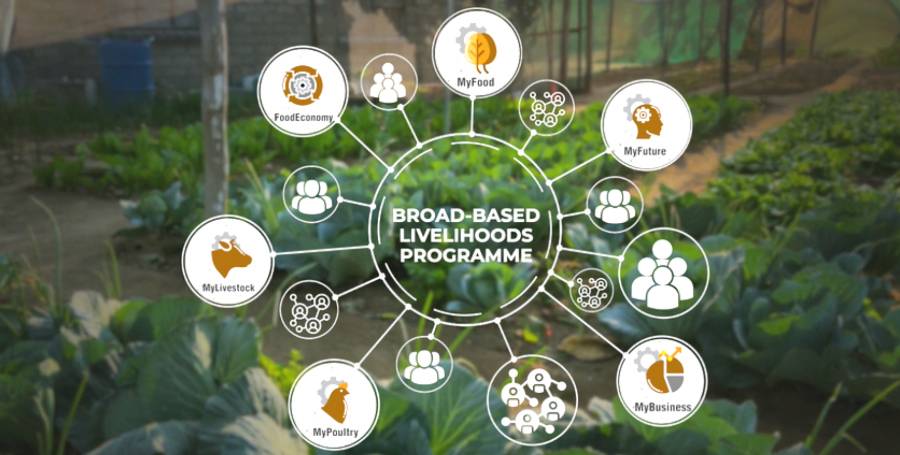Corporate Social Investment and Local Economic Development
The Difference Between Corporate Social Investment and Local Economic Development
Corporate Social Responsibility (CSR) is the recognition that companies have a duty to improve the lives of residents in the communities in which they operate. This is above and beyond simply providing its goods and/or services. It is more than maximising shareholder value. It is adding value to society at large. Ensuring ethical business practises and giving good benefits to company employees are in view here, too. The obligation to use sustainable and environmentally friendly materials would fall also under CSR. Since the 1960’s the recognition of this duty has grown and developed.
Corporate Social Investment (CSI) can be said to fall under the umbrella of CSR. It is direct monetary investment which companies make. These are made with the aim to improve the areas and communities they operate in.
Local Economic Development (LED) is quite a new field. Research and policy implementation are still being developed. It is recognised as one of the most important ways of decreasing poverty. It can improve the quality of life in communities that will embrace it. LED is a key element in long-term poverty eradication. This will mean addressing unemployment and inequality. This is true globally. But it is especially true for developing countries.
LED can be a component of an organisation’s CSI. It could also form the bulk of a company’s Social Investment strategy. When corporations get behind initiatives that improve local communities, the world is improved. Society benefits. CSI can realise its vision in concrete LED results.
What is Corporate Social Investment?
CSI is not simply a company using money and resources to improve the world around them. When this spending has no direct benefit to the business, that is when CSI is happening.
CSI is giving cash and non-cash items to people, organisations and communities outside of the business.
International examples of CSI
It is wonderful to say that there are many examples of CSI happening globally. Very famous brands have many initiatives to improve the world.
Colgate-Palmolive gives millions of children around the world free dental screenings. It also promotes oral health education. Duracell’s PowerForward program donates free batteries to families in need after hurricanes, tornadoes and floods. Warby Parker is a company that manufactures eyeglasses. It donates money and eyeglasses to people in need around the world through its “Buy a Pair, Give a Pair” program.
Google organizes an annual volunteer day each summer. It also matches employee donations to nonprofits. For every hour of the time Microsoft’s employees spend volunteering, the company donates $25 to the charity they support.
CSI in South Africa
 In the 2016/2017 financial year companies in South Africa had spent about R9 billion on CSI programs. This showed an increase approximately 105% over 20 years. In 1997 the figure was R1.5 billion.
In the 2016/2017 financial year companies in South Africa had spent about R9 billion on CSI programs. This showed an increase approximately 105% over 20 years. In 1997 the figure was R1.5 billion.
Almost half of this spend is on education. This is followed by direct social development and health initiatives.
It is good that companies often target real needs and take real steps to meeting those needs. The question is, is all this making for real positive change in the communities which companies are trying to benefit? For a company to begin with its own CSI program, where is the best place to start? What is the best way to meet the underlying needs that produce poverty? Is there a strategy that could really produce long-term results? Can there be initiatives that in time could allow the communities to be self-sustaining?
This is where Local Economic Development comes in. When the investment process translates into real Local Economic Development, this is where positive change begins to impact the lives of community residents in a broad-based, meaningful way.
What is Local Economic Development?
Traditional macroeconomics has often been ineffective at a local level. It has fallen short in seeing social and economic advances in many local communities. This is what LED seeks to address. LED is part of micro-economic development economics. Development economics focuses on economic, cultural and political needs. It assesses what is the best and fastest way to get the benefits of economic progress to the most people. This is how the poverty trap can be broken.
LED has been defined in some important ways. These all highlight an important aspect of this concept. They also explain how LED will succeed. At its most basic, LED cultivates a local economy’s capacity to create wealth for local residents. It is also the ways undertaken to grow this capacity. It is a long-term undertaking to build a robust and lasting local economy. This is in a specific geographic area, often at a municipal level.
LED leads to the growth of local economies. It aims to use what a local community has in order to achieve a better quality of life for that community. Local business activities are stimulated to maintain and grow employment. As commercial endeavours grow, it assures those employed that their jobs are secure. It also means more people will find work as the businesses expand. There are three main entities in view. They are the local businesses, community-based organisations, and local government. Their effective engagement with these aims produces these results.
LED aims to find economic solutions that improve local competitiveness. It wants to boost local advantages in resources to compete on a global scale. Locals from all sectors of a specific area work together. They unite to activate and stimulate local commercial activities. It does this by focusing on the local resources and advantages of a specific community. Umsizi has worked with community leaders, corporates, local businesspeople, community members, government and even churches in the work of uplifting communities. We have fantastic relationships with these partner entities and stakeholders.
What are the advantages of LED?
 It has been right to say that LED should be everybody’s business. This includes residents, local business and government. LED can succeed where more traditional economic strategies have fallen short. It does this by empowering local residents. It also leads to creating tangible, local opportunities. This ensures local participation. The local people play an active role in determining their own economic future. This means greater ownership of the policies. These will then stand a much better chance of being effectively implemented. LED aims to get local businesses and institutions involved in the whole process. This means they play an active role in partnering with the community.
It has been right to say that LED should be everybody’s business. This includes residents, local business and government. LED can succeed where more traditional economic strategies have fallen short. It does this by empowering local residents. It also leads to creating tangible, local opportunities. This ensures local participation. The local people play an active role in determining their own economic future. This means greater ownership of the policies. These will then stand a much better chance of being effectively implemented. LED aims to get local businesses and institutions involved in the whole process. This means they play an active role in partnering with the community.
Focusing on local concerns and issues results in addressing essential local needs. This means developing area-specific policies. These are designed to meet the concerns and challenges of the community. It also means that there isn’t a “cut and paste” outlook. Simply adopting a policy which saw success elsewhere is not how LED works. Every project will be tailor-made to suit the specific environment. This will take all the particular socio-economic factors into account.
This approach also builds on local strengths and advantages. This means in time, the local economies will be robust and resilient. The communities’ local quality of life improves. Creating local opportunities and local jobs makes the local community better.
Umsizi is Your Choice to see CSI implemented through LED and other strategies
 Thankfully, many South African companies are taking it upon themselves to act in a socially responsible manner. In South Africa, corporations are working towards improving local communities and society as a whole.
Thankfully, many South African companies are taking it upon themselves to act in a socially responsible manner. In South Africa, corporations are working towards improving local communities and society as a whole.
More and more consumers are rewarding companies for their CSR initiatives. Already in 2011, a report showed that just under half of those surveyed took notice of a company’s CSR initiatives. This trend will continue to grow as consumers become more and more socially aware. This is just one of the benefits of CSR. And CSI is one of the most tangible ways to implement CSR.
A business needs to be developing and supporting effective programmes. LED benefits the communities in tangible and sustainable ways. Through LED programmes, CSI is having a measurable positive impact.
Umsizi has a track record of developing sustainable LED programmes. We will partner with you to ensure that your CSI spending is going to effective programmes that will make for a better South Africa for all.
Bibliography and further reading:
https://repository.nwu.ac.za/bitstream/handle/10394/11828/8042.pdf?sequence=1
https://www.enterprise-development.org/implementing-psd/local-economic-development-and-clusters/
https://www.investopedia.com/terms/s/socialresponsibility.asp
https://www.businessnewsdaily.com/4679-corporate-social-responsibility.html
http://www.ngopulse.org/article/csi-or-csr-are-you-learning-npo
http://www.sjapc.net/2013/11/corporate-social-responsibility-china/
https://www.businessnewsdaily.com/4679-corporate-social-responsibility.html
http://www.ngopulse.org/article/csi-or-csr-are-you-learning-npo
https://www.jse.co.za/about/corporate-social-investment
https://bizfluent.com/about-4676602-what-corporate-social-investment.html










